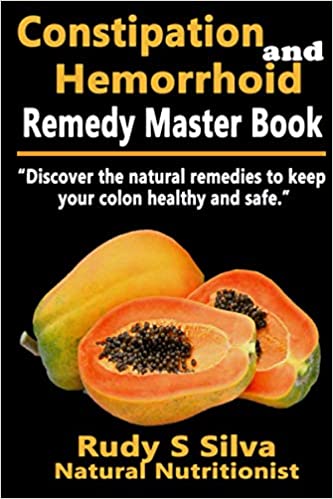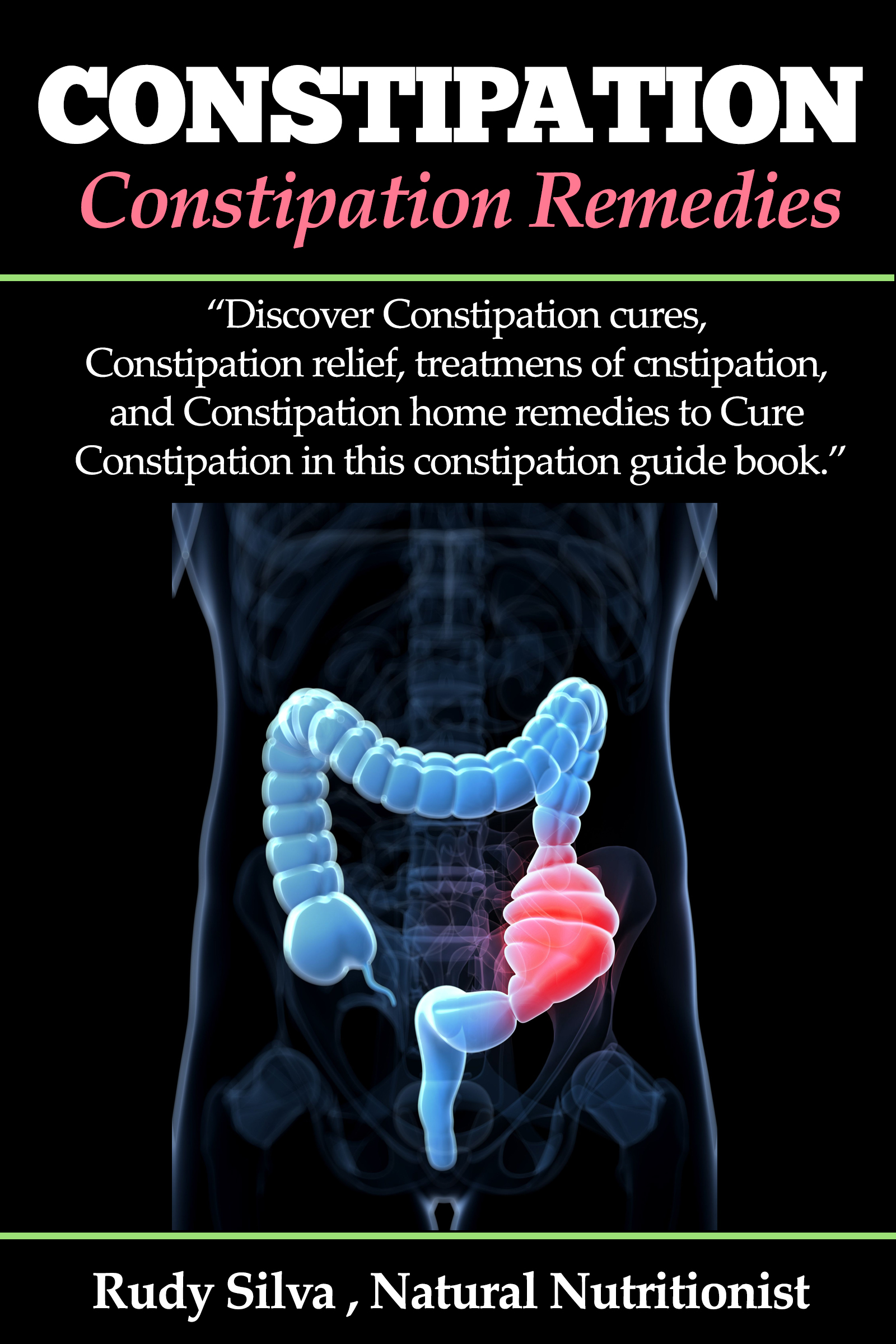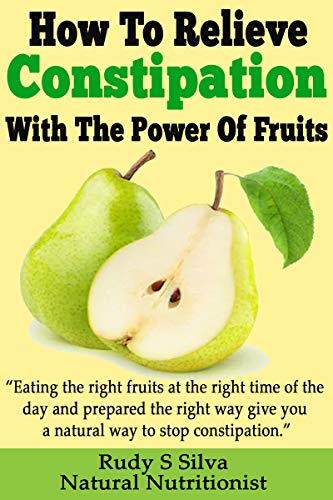Devastating Illnesses that Constipation Causes
In this chapter, we will cover the symptoms, conditions, and illnesses that are associated with constipation.
Perhaps the most critical thing to understand about constipation whether it happens only once in a while or frequently year after year is that:
Fecal matter that stays in your colon longer than it should form a toxic bundle. This bundle then becomes the source for a toxic colon and body. A toxic colon and body set the stage for various illnesses that can make your life miserable or can shorten your life.
When you have constipation, you have fecal matter in your colon that needs to come out. Fecal matter that stays too long in your colon hardens, decays, and becomes putrefied.
In their book, Encyclopedia of Natural Medicine, 1991, Michael Murray, N.D., and Joseph Pizzorono, N.D, points out that,
“Antigens and toxins from bowel bacteria have been found to be possibly related to the development of diabetes mellitus, meningitis, myasthenia gravis, thyroid disease, ulcerative colitis, and other diseases.”
When you are constipated you will have various symptoms you may not associate with your condition. You could have a feeling of being-out-of-sorts or being depressed. You could have headaches, bad breath, sour stomach, bloating, abdominal pain and hardness.
What are some of the symptoms or conditions that are caused by constipation?
This list is long.
- Abdominal discomfort, gas pain, heartburn
- Acid Reflux
- Alternating constipation – diarrhea
- Appendicitis
- Arthritis
- Back Pain
- Ballooned colon
- Boils, Pimples, and Skin Rashes
- Breast Cancer
- Cellulite
- Colitis
- Colon cancer
- Colon Degradation
- Diverticulosis
- Excessive bad bacteria
- Flatulence
- Growth of unfriendly bacteria – bad bacteria uses decayed
- fecal matter and creates by products that cause cancer and
- other illnesses
- Halitosis
- Headaches
- Heart problems
- Hemorrhoids
- Hernia, hiatal or inguinal hernias
- IBS
- Impaction
- Indigestion
- Insomnia
- Liver weakness
- Mal digestion
- Nagging back pains
- Nausea
- Nutritional deficiencies
- Obesity, weight gain
- Reabsorption of estrogen
- Reabsorption of bile and cholesterol
- Spastic colon
- Tight colon
- Toxic Colon
- Unclear thinking
- Varicose veins
- Weight gain
- Worms, parasites
Acid Reflux
When fecal matter remains too long in your colon, back pressure builds up in your colon and affects the food coming into the stomach and small intestine. This pressure can cause food to be pushed backward and gases from your colon to flow out of the mouth. This gas can irritate the throat and mouth lining and produce bad breath.
Appendicitis
The appendix is part of the lymphatic system just like tonsils. It releases lubricants and antiseptic liquids that stimulate peristalsis and protect the surrounding tissue.
Appendicitis occurs when you lack fiber in your diet. Without fiber, the fecal matter that moves into the appendix becomes stagnant and does not come out. This stagnant matter becomes putrefied and toxic and eventually leads to appendicitis.
Arthritis
Poisons from your colon can go to the joints and cause stiffness and pain. Constipation is one of the symptoms that exist before the appearance of arthritis
Constipation causes arthritis.
Back Pain

Back pain can be caused when you have constipation. This happens when toxins and toxic gases move from your colon into the lower back muscles and tissues, creating an acid condition.
Minerals in the lymph liquid try to neutralize all the toxic matter but don’t always succeed, especially when your body is deficient in minerals.
Continual constipation uses up much of the minerals in the lower back, creating an acid condition in the lower back. These results in pain weakened muscles, and tension that pulls the vertebrae out of position. This results in the need for a physical therapist or chiropractic care.
Adjustments the chiropractor makes will not hold if you continue to have constipation and fail to eat foods that provide you with high levels of minerals – vegetables and fruits.
Ballooned Colon
A ballooned colon is a condition where your colon is larger than normal and expanded outward. Your colon walls have lost their strength and tone. This occurs when you are constipated and the fecal matter remains in one spot too long. As more fecal matter accumulates in this one spot, your colon walls continue to balloon out.
Boils, Pimples, and Skin Rashes
Boils and other skin eruptions occur when your colon is overload with toxin and cannot remove them fast enough through bowel movements. If you are constipated, the body will use your other channels of elimination to eliminate toxins from your colon – skin, kidney, lungs, and lymphatic system. These toxins, as they come into the skin, cause infections, pus, and eruptions to appear.
Breast Cancer
Constipation can also increase the risk of getting breast cancer. Constipation resulting from high levels of bad bacteria in your colon creates an environment where less bile salts and estrogen are detoxified. This condition has been related to breast cancer and cancer.
Researchers at the University of California at San Francisco have discovered that women who only have 2-3 bowel movements each week show signs of abnormal cell proliferation in the aspirated breast fluids.
In addition, toxins from a contaminated colon need to be moved out of the body. The lymphatic system helps to move and detoxify these toxins. When the body is overload with toxins the lymph nodes become clogged and accumulate toxins, which prevent their removal. This condition can lead to diseases of various types.
Colitis
Colitis is an inflammatory or ulcerative condition that occurs along your colon or rectum wall.
Colitis, caused by emotional stress, excessive bad bacteria, food allergies, and poor diet, causes excessive diarrhea. Many of the causes of colitis are similar to those that cause constipation.
Inflammation of your colon walls in colitis can produce bleeding, which can darken the stool color.
Health Alert: Colitis typically requires a low fiber and high protein diet. If you have colitis it is critical you review with a Nutritionist the type of colitis you have so they can recommend the right eating plan for you.
Colon Cancer
If you have a tumor in your colon this could block the movement of your fecal matter. This condition could cause constipation and result in small diameter stools.

Colon cancer occurs more frequently in people who eat meat – beef or chicken. This happens since meat promotes the growth of bad bacteria, which converts regular bile, coming from the gallbladder, into cancer-promoting substance.
Since meat moves slowly through your colon and especially when you are constipated, these cancer-promoting substances have the opportunity to stay in contact with your colon wall longer or to embed themselves into your colon wall.
Because fiber helps to speed fecal matter through your colon, fiber helps prevent colon cancer. In addition, fiber feeds the good bacteria, which weakening the bad bacteria and their toxic effects.
Crohn’s Disease
Crohn’s is a severe inflammatory condition of your colon. This inflammation typical occurs at the last portion of the small intestine near the ileocecal valve and the start of your colon. Overtime bowel function is affected as it is with all other infections, inflammations or ulcers in your colon.
Crohn’s disease affects the absorption of vitamin B12 and reabsorption of bile salts. Deficiencies in these nutrients can
lead to other serious diseases.
Crohn’s is typically caused by infectious organisms, diet, or emotional issues. Like constipation, a high fiber diet is recommended.
Excessive Bad Bacteria
Constipation causes bad bacteria to multiply. As fecal matter remains stagnant in your colon, the pH in your colon becomes more alkaline which is the environment, which promotes the growth of bad bacteria and the elimination of good bacteria.
Diverticulosis
Diverticulosis is caused by constipation. This happens when fecal matter in your colon remains too long at one spot creating toxic weak spots along your colon walls.
Constant constipation with increased pressure from fecal matter and fecal matter gases causes these weak spots to bulge or become irritated and infected. These outward bulging spots are known as a hernia or diverticulosis.
When you have a weak or toxic point on your colon walls, the straining and the constant peristaltic action your colon makes, to move food from a poor diet, creates small pouches. These pouches can become inflamed and filled with toxic fecal matter.
As this disease become worse it creates constipation and it was constipation that first created them. A high fiber diet is recommended for you if you have diverticulosis.
Flatulence
Flatulence is gas that is passed out of the rectum. This gas is created from the:
- Air we swallow during eating
- Gas created by bacteria acting on undigested food in your colon
- Gas created by bacteria acting on fiber
- Gas created from decaying and purifying food in your colon.
- Gas created in the stomach or colon because of anxiety and tension.
- Gas that is contained in carbonated drinks that we drink
What kind of gas is this? Most of it is carbon dioxide with hydrogen sulfide, the smelly part of flatulence, and methane. Some ammonia gas is also created and passes through your colon walls and into the bloodstream, which then has to pass out through the urine.
When you have constipation, this gas can become trapped in your colon, creating pain and discomfort in the abdominal area.
In her book, Nancy Nugent, How to get along with your Stomach, 1979, she quotes Dr. Michael D. Levitt of the University of Minnesota as saying, “Ideally, the gas should then pass out through the anus as flatus, but it may become trapped in the intestinal tract by an obstruction or by the peristaltic inactivity (constipation) cited Dr. Levitt. If so, the result will be predictable: bloating and pain.”
Heart Problems
One side effect of constipation is straining to have a bowel movement. This creates an increase in blood pressure, which can trigger a heart attack in anyone with a weak heart or arteriosclerosis. This means if you have any cardiovascular conditions – high blood pressure, angina, weak arteries, and
so on – you need to be careful and make sure you don’t get constipated. Follow the remedies and eat the foods that I have outlined in this book.
Hemorrhoids
Hemorrhoids are related to constipation. They are blood vessels in the lining of the rectum that have enlarged. This occurs when you are constipated and have to strain and push to have a bowel movement. If you strain to have bowel movements, year after year, you will develop hemorrhoids.
Straining to have a bowel movement will also produce varicose veins, hiatal hernias, or diverticulosis.
Hemorrhoids are more common in men than in women. Hemorrhoid symptoms are bleeding, itching, mucosal discharge, protruding tissue, discomfort, and pain in the anus.
When bleeding occurs, you will see blood in your stools and towel tissue and it will diffuse rapidly in the toilet bowl water.
To give the area in the anus with hemorrhoids a chance to heal, it is necessary to have bowel movements that are free from straining and puffing. This is accomplished through the proper combination of natural laxative remedies and diet.
Impactions
Impactions are an accumulation of fecal matter on your colon walls. This occurs over years of eating a poor diet. This causes gummy, pasty, and sticky fecal matter, which accumulates along your colon walls.
This bowel condition is where small pockets form along your colon walls which collect fecal matter, which does not move out during regular bowel movements. Over time this trapped fecal matter becomes putrefied and toxic.
Impaction can also occur when fecal matter becomes attached to your colon wall where it remains despite fecal matter passing over it. It becomes harden and later it becomes difficult to remove.
Liver Weakness
Constipation weakens the liver. The liver is responsible for filtering out toxins from the blood that comes from the stomach and your colon. When you have constipation, fecal matter remains longer in your colon than it should. This gives toxins the time to become absorbed into the blood and into the liver.
When the liver gets overwhelmed with toxins, the liver weakens, blood is not clean, and blood circulation is decreased. The liver produces less bile, which then affects your colon’s peristaltic movement and this leads to constipation.
Estrogen Reabsorption
Constipation creates a condition where estrogen can be reabsorbed into the blood. This can lead to excess estrogen levels in the body. High estrogen levels are associated with breast cancer and infertility.
Normal bowel movements can lead to normalizing estrogen levels in the blood.
Spastic colon
Spastic colon is a condition where the walls of your colon have diminished tone and have become misshapen. When this occurs, bowel movements do not occur on a normal frequency. This condition occurs with years of poor eating habits or emotional strain.
Tight Colon
This occurs when excess tension exists in your colon walls. This causes the walls to narrow down and decrease the size of your colon opening. This condition leads to excessive bouts with constipation and results from anxiety and excess nervous tension. A poor diet adds to this condition.
Toxic Colon
When you have constipation, cholesterol elimination is blocked and remains in your colon until you have a bowel movement. The longer cholesterol stays in your colon the higher chance it has of being reabsorbed into the body.
This is why fiber is necessary for your diet. Fiber helps to bind cholesterol so it is not reabsorbed into the blood but passed out of your colon in the fecal matter.
Where does this cholesterol come from? It comes from the liver bile that passes into the gallbladder. The gallbladder releases this bile into the small intestine.
Fiber also binds with bile, various wastes, toxins and carcinogens in your colon so they are not reabsorbed into your bloodstream. Without fiber, constipation sets in allowing toxins to become fermented, decayed, and purified. These toxins can be absorbed back into our body. This condition is called a toxic colon.
Another benefit of fiber is that in your colon, fiber will delay the absorption of sugar and sugary substances into the blood. This helps to prevent many other diseases related to sugar.
Unclear thinking
When your fecal matter slows down or stops moving in your colon, chances are you will experience foggy and unclear thinking. Slow moving fecal matter leads to many conditions that stress and pain your gastrointestinal system. This stress and pain partially decrease your total awareness, which leaves your remaining awareness of thinking and problem-solving.
When you are under pain, your thought process must concentrate part of its awareness on the pain. This is part of your survival mechanism. When you are pain-free, this is the time when you will be the most creative and have the ability to have clear thinking, which can result in producing the best performance in whatever you do.
Weight Gain
When your colon becomes impacted with mucus and dried fecal matter, your colon is in a toxic state. This allows toxins to move into the body and eventually plug up the lymph nodes and system. This blockage, as it gets more serious, can result in swelling of the legs and torso.
A toxic colon prevents the total absorption of nutrients and this can cause you to overeat to get the nutrients your body needs.
In Burton Goldberg’s book, Weight Loss – Alternative Medicine Definitive Guide, 2000, Burton points out,
“Toxins that build up in your colon pass through the intestinal wall and accumulate in the lymphatic system – a network of vessels and nodes that clean and drain the body of toxic substances. When the flow of toxins from your colon becomes too heavy, the lymph can become blocked and cause toxins to back up throughout the body. The result can be swelling of the torso and legs, damage to the liver and other detoxification organs and blood toxicity … this is one of the main reasons for obesity, explains naturopath Richard Anderson, N.D., N.M.D”
Worms and Other Parasites
Luc De Schepper, M.D., Ph.D., C.A., in his book, Peak Immunity, reminds us that,
“Millions of Americans discover each year, we have parasites too. Many, in fact, are native to this country. You can get them without leaving your home…The parasites range in size from a microscopic single-celled protozoan to a worm that may exceed 30 feet in length.”



